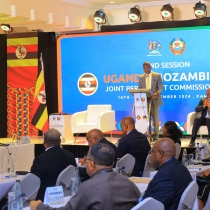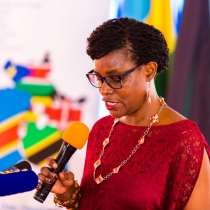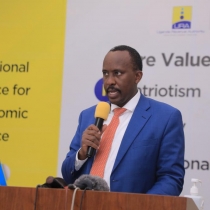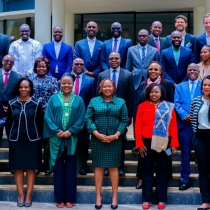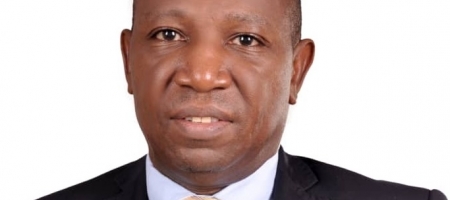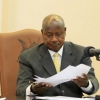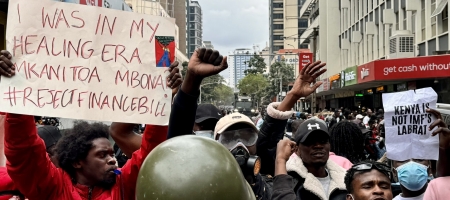Embracing Institutional Integrity: Gen. Muhoozi’s Vision For Transformative Economic Growth Of Uganda

The Tranquilizer
In recent times, the focus of Uganda's economic strategies has stirred significant debate, particularly regarding the management of the country's coffee sector—a crucial component of its agro-based economy. A prominent issue has been the substantial financial resources allocated to individuals who may lack the expertise to effectively manage such investments.
In this context, General Muhoozi Kainerugaba’s recent advocacy for strengthening existing government structures over relying on individual efforts is a refreshing and pragmatic approach. His stance underscores the importance of leveraging established institutions to drive national development rather than placing undue trust in unqualified individuals. The current situation reveals a troubling trend: considerable funds have been diverted to initiatives managed by individuals who, despite their high-profile connections, lack practical expertise in the areas they are entrusted with.
A notable example is the substantial financial investment made into coffee sector initiatives overseen by the President's son-in-law. Despite the billions allocated, there has been scant tangible output or significant improvements in the coffee value chain. This misallocation of resources has led to numerous pitfalls, including the establishment of dubious coffee hubs in Europe and ill-conceived meetings that have not translated into meaningful progress for Uganda’s coffee industry.
Gen. Muhoozi Kainerugaba’s critique of this approach is both timely and necessary. He advocates for a return to systemic governance, emphasizing the efficacy of established institutions like the Uganda Coffee Development Authority (UCDA). Gen. Muhoozi’s perspective is grounded in the belief that strengthening and properly funding existing institutions, rather than investing in individuals with questionable qualifications, will yield more sustainable and impactful results. His argument is that institutional integrity and continuity are crucial for the effective execution of national policies. Gen. Muhoozi’s approach champions the robustness of institutional frameworks over individual-centric strategies. Institutions such as the UCDA possess the experience, specialized knowledge, and structured methodologies required to address sectoral challenges.
By channeling resources into these entities, Uganda can build on existing expertise and frameworks, ensuring that investments are managed with a clear focus on long-term sustainability and effectiveness. Furthermore, institutional frameworks provide a more transparent and accountable approach to managing public resources. They are subject to rigorous oversight mechanisms that individual-led initiatives often lack. This transparency is vital for ensuring that funds are used efficiently and that the outcomes are measurable and beneficial to the broader population. Conversely, placing large sums of money in the hands of individuals, particularly those without relevant expertise, can be fraught with risks. In the case of the President's son-in-law, the lack of a tangible connection to coffee cultivation or processing has led to ineffective utilization of resources. This approach not only undermines the credibility of national initiatives but also risks fostering an environment of arrogance and unaccountability among individuals who are unqualified for their roles.
The allocation of vast resources to individuals without a solid track record can lead to a disconnect between policy implementation and actual outcomes. Instead of producing beneficial results, it often leads to inflated egos, misguided ventures, and a significant loss of public trust. As highlighted by Gen. Muhoozi, such practices result in the squandering of taxpayer money, which could otherwise be used to bolster effective institutions and achieve substantial, lasting improvements in key sectors like coffee.
Gen. Muhoozi’s advocacy for empowering established institutions rather than relying on individual efforts presents a compelling case for reform. It highlights the need to refocus efforts on supporting entities with proven expertise and structures capable of driving meaningful change. By reinforcing institutions like the UCDA, Uganda can harness their experience, infrastructure, and accountability mechanisms to address sectoral challenges more effectively.
In conclusion, embracing Gen. Muhoozi’s ideology of institutional integrity offers a path toward a more reliable and sustainable approach to national development. It emphasizes the value of utilizing established systems to manage public resources and implement policies, ensuring that investments are directed toward generating tangible benefits for all Ugandans rather than enriching a select few. By prioritizing institutional strength over individual prominence, Uganda can foster a more accountable and effective governance framework that truly serves the interests of its people.
The writer is a Social Analyst
Links
- 87 views






